Science of Nutrition Symposia

Results
-
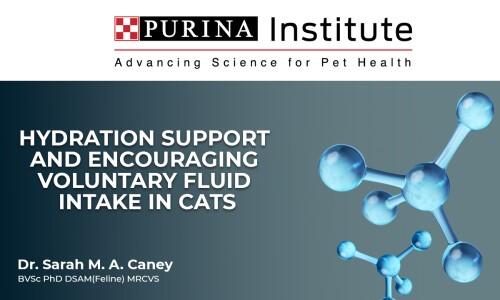
Feline Hydration
Hydration support and encouraging voluntary fluid intake in cats
Sarah M. A. Caney, BVSc, PhD, DSAM (Feline), MRCVS
Encouraging cats to consume more water is an important recommendation in a number of situations, including conditions associated with polyuria or increased fluid loss, lower urinary tract disease, chronic constipation and advanced age. Using different cases from her practice, Dr. Caney provides suggestions for supporting patient hydration and encouraging voluntary fluid intake.30-60 minutes
-
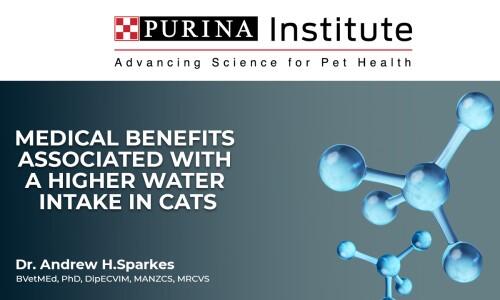
Feline Hydration
Medical benefits associated with a higher water in-take in cats
Andrew Sparkes, BVetMEd, PhD, DECVIM, MANZCS, MRCVS
Cats are efficient at maintaining hydration. However, those cats with certain health conditions may benefit from greater total water intake. Dr. Sparkes provides a brief overview of feline hydration and the conditions in which water intake may be critical for health.Less than 30 minutes
-
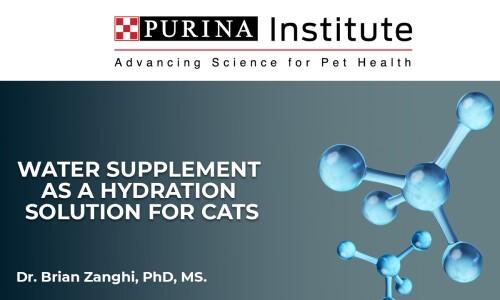
Feline Hydration
Water supplement as a hydration solution for cats
Brian Zanghi, PhD
Studies have indicated that water supplements can be highly palatable to cats. These studies demonstrated that cats not only drink more liquid, but maintained higher liquid intake when given access to nutrient-enriched water. Consequently, urine volume increased and urine specific gravity decreased. Cats that need greater hydration would benefit from a water supplement.Less than 30 minutes
-
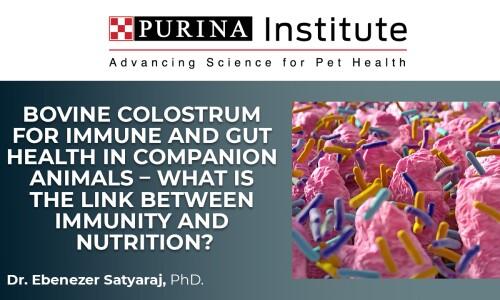
Immunity, Microbiome
Bovine colostrum for immune and gut health in companion animals - what is the link between immunity and nutrition
Ebenezer Satyaraj, PhD
Discover the answers to two key questions: Why enhance the immune health of healthy dogs and cats? and How can food influence the immune system? Dr. Ebenezer Satyaraj shares findings from studies into immune and gut health benefits of adding bovine colostrum to diets.Less than 30 minutes
-
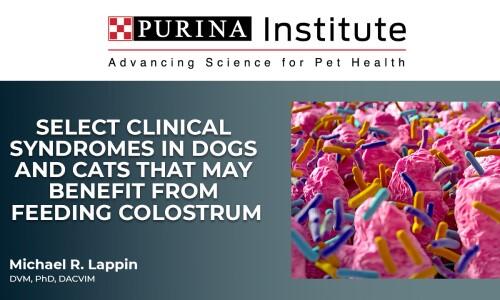
Immunity, Microbiome
Select clinical syndromes in dogs and cats that may benefit from feeding colostrum
Michael R. Lappin, DVM, PhD, DACVIM
A number of positive effects have been documented in healthy research dogs and cats while being fed bovine colostrum-supplemented food. Dr. Michael Lappin discusses potential clinical uses of bovine colostrum-supplemented food using three common clinical problems in cats and dogs as examples.Less than 30 minutes
-
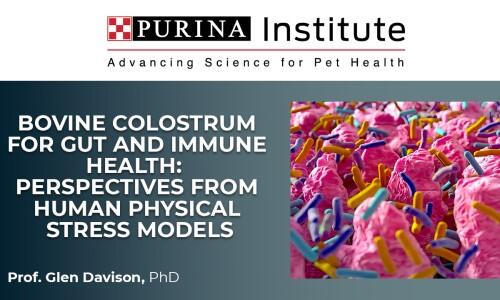
Immunity, Microbiome
Bovine colostrum for gut and immune health: perspectives from human physical stress models
Glen Davison, PhD
Bovine colostrum has received considerable attention as a dietary supplement that may confer immune and gut health benefits. Explore the research that indicates the beneficial effects of bovine colostrum supplementation on immune function and intestinal integrity in people during acute and chronic exercise-induced stress.30-60 minutes
-
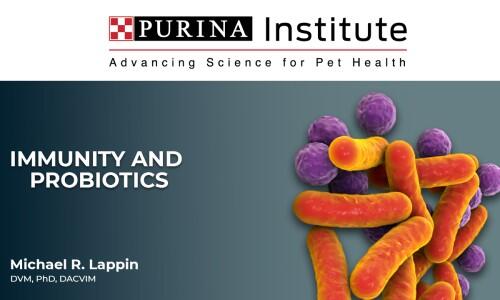
Immunity, Microbiome, Probiotics
Immunity and Probiotics
Michael R. Lappin, DVM, PhD, DACVIM
Probiotics are live microorganisms that when administered in adequate amounts confer a beneficial health effect on the host. Most information about pet probiotics focuses on gastrointestinal disease management. But could a probiotic modulate the immune response of dogs and cats? Dr. Michael Lappin reviews evidence that shows some probiotics may enhance or dampen the immune system.30-60 minutes
-
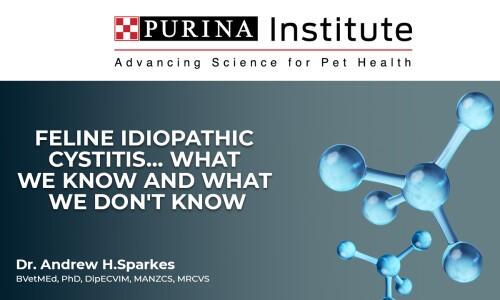
Feline Hydration
Feline idiopathic cystitis… what we know and what we don't know
Andrew Sparkes, BVetMEd, PhD, DECVIM, MANZCS, MRCVS
Feline lower urinary tract disease (FLUTD) is a common syndrome in veterinary practice and typically represents 4-6% of cases presented in general practice. While a number of different identifiable causes of FLUTD are recognised, studies have found that feline idiopathic cystitis (FIC) accounts for 55-75% of cases. An evidence-based review of the causes and management of FIC is provided, with an emphasis on dietary management and environmental modification.Less than 30 minutes
